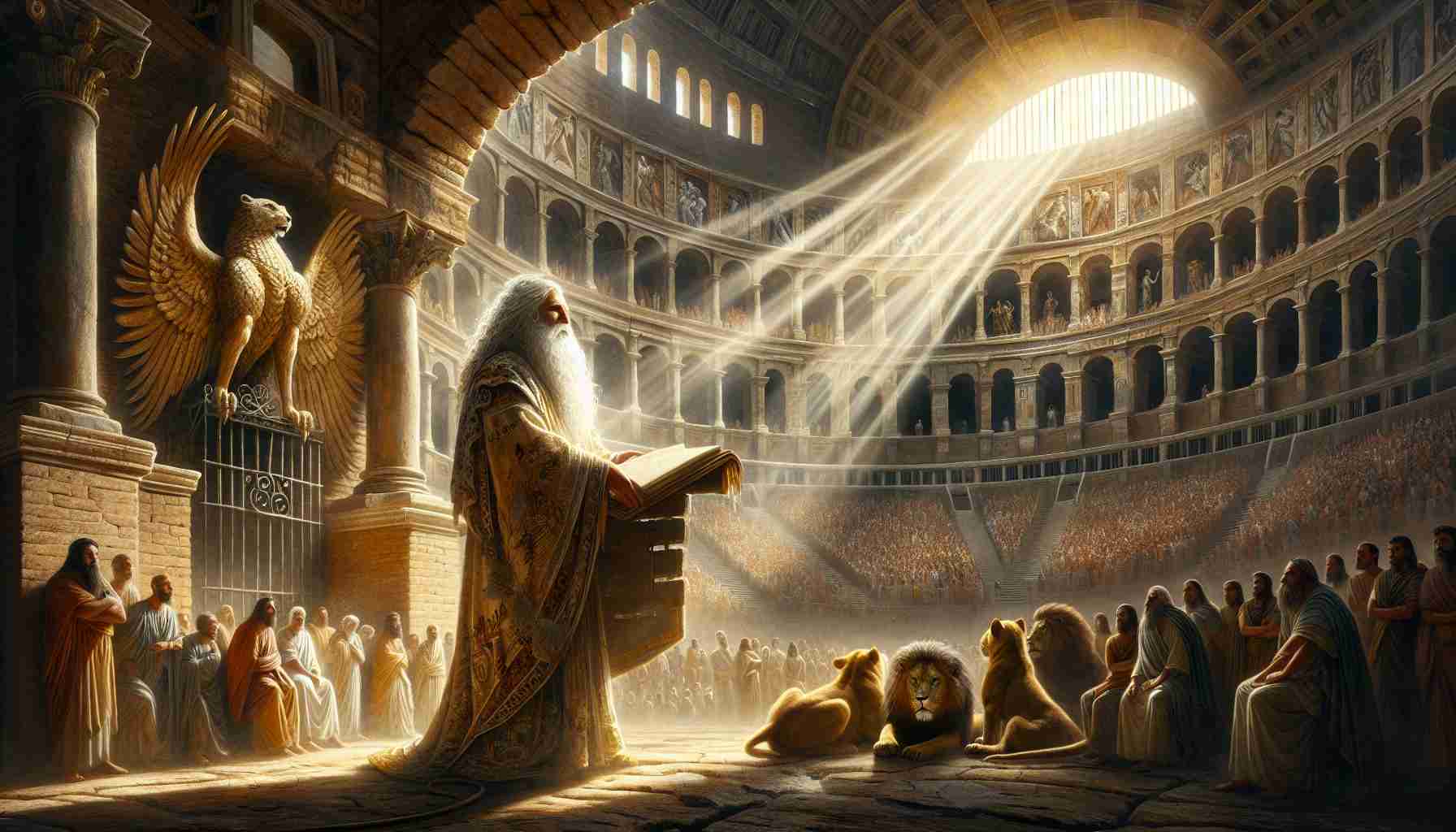

A jagged wind tore across the Tiber, rattling wooden carts along the Appian Way and sweeping dust through the gates of the Eternal City. Rome pulsed under the weight of empire, her streets thick with the scent of iron, sweat, and the fervor of spectacle. The Colosseum loomed above the Forum like a titan of stone—the Flavian Amphitheater, born from Vespasian’s ambition and bathed in the blood of the condemned. On this day, May 3rd, in the year 115, it would drink again.
Behind the iron grille in darkness below the arena floor, a man knelt, hands bound, robes worn and marked by dust from Antioch’s roads. Ignatius, Bishop of Antioch, once a pupil of the Apostle John, had journeyed under Roman guard from Syria through Asia Minor, up into Illyricum, and finally to Rome. At every stop, believers came to him—some to free him, others to weep. He offered only peace. To the church in Ephesus, he had sent word, “Stand firm, united through the bishop as through Christ Jesus.” His letters, scratched by trembling fingers and inked with resolve, poured like oil through the cracks of a frightened young Church.
Now he waited to die, heart steady, lips moving in quiet prayer.
From above came the roar of thousands. Timber beams trembled as the trapdoors began to unlock. The guards flanked him, silent, their faces pulled tight with a mixture of awe and dread. This was no rebel or criminal. This was a man ready to be broken—yet already unbroken.
2 Timothy 4:6 echoed within him: “For I am already being poured out like a drink offering, and the time of my departure is at hand.” His body would be scattered, but his faith had already seeded a harvest none could steal.
The gates opened. Light poured in. The crowd erupted.
Ignatius emerged beneath the sun, his white beard trembling in the wind, robes torn but not his dignity. Soldiers stood at attention, a nod to his rank not just in the Church, but in spirit. The lions had been starved for days. Their cries—piercing, guttural—promised a savage end. And still, Ignatius smiled.
High above, in the imperial box, the specter of Trajan reclined—eagle-emblazoned armor glinting like flame. He looked down not at a victim, but a challenge. The same man who once declared the empire forged stronger than any god now watched one of Christ's own offer his body as sermon.
The beasts were released.
They came with thunderous pace, the scent of flesh in their nostrils. The crowd leaned forward, breath held for the violence. But Ignatius did not flinch. His last words—only caught by those in the front ranks—were not screams. “Let me be ground by the teeth of beasts, that I may be found as pure bread for Christ.”
Then the lions silenced him.
Only bones remained, crushed and swept into sacks. No relics but scattered dust. No grave, only stories.
Yet something stirred far beyond the arena. In Smyrna, Ephesus, and Tralles, churches gathered his letters. His words resounded louder than any trumpet blast. "Where the bishop is, there let the people be, even as where Jesus Christ is, there is the Catholic Church,” he'd written. For the first time, the word Catholic—kata holos, according to the whole—was used to unite a fragmented faith under suffering.
Centuries passed. Empires fell. But the Colosseum remained, its stones once slick with martyr’s blood now laced with ivy and memory. Pilgrims would one day kneel near the arena’s edge, where lions once fed, and remember.
They said Ignatius had a vision before death, that the Apostle John had come to him in dream. “Fear not, my son,” the aged disciple whispered. “To die in Christ is life. Your blood will seed courage. Your letters, lampstands in exile.”
In time, his bones—or what men believed to be his bones—were gathered and entombed in the Church of San Clemente, near the Lateran. Still others claimed they remained in Antioch or were scattered across Asia Minor. No one agreed. But all agreed on this: Ignatius had not died with fear in his heart. He had written his life as an epistle, and the Church never forgot.
And the Colosseum? When Rome turned her sword into a cross, when the Empire kneeled to the Crucified Redeemer, Pope Benedict XIV declared it sacred ground. No games would be held there again. A stone cross was raised where once the emperor watched. It bore no golden trim, only the name of the One whom Ignatius loved more than life.
Even today, when the wind hushes over Rome, beneath the arches where shadows fall, there are whispers. The roar of crowds has faded. The lions are no more. But somewhere in the hush is the cry of a bishop, not begging for mercy—but offering his life as liturgy.